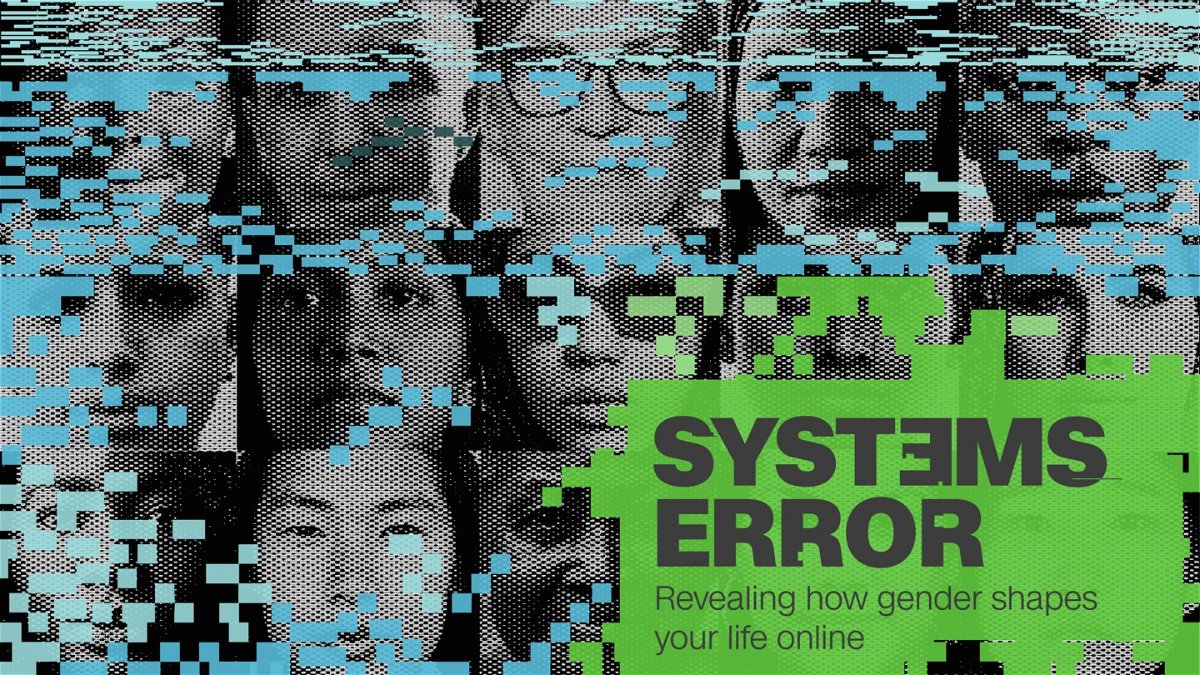Systems Error: Why CNN will be reporting about gender inequalities online

As Equals
By Eliza Anyangwe, Managing Editor of As Equals
Provided you are able to get online or have a mobile phone, the internet, social media platforms, digitized payment and telecommunication systems, have given us incredible access to information; facilitated communication and connection with people around the world; enabled us to start or join communities or businesses, or support movements for change almost anywhere in the world and much more. Automation and machine-learning algorithms are leading to untold efficiencies and greater personalization.
Being online — in many parts of the world and for billions of people — has simply become how we do life: how we learn, find love, let our hair down or earn our living. But here’s the rub: not only is digital access itself not universal (including in some of the world’s most developed countries, such as the United States), how safe or included you feel once you are part of the global online community also varies greatly. In fact, over and over again, we see that the inequalities that exist offline are simply replicated online.
Still, leaders in the public and private sectors are betting big on the continued acceleration of digital transformation. As such, it is essential to ask: who is winning and who is losing? What are some of the assumptions built into these technologies that have become ubiquitous? Do we like the direction of travel and how do we turn the ship around if we don’t?
At As Equals, CNN’s global gender reporting team, we have been exploring these questions through the lens of digital technology’s impact on women, queer people and gender minorities, particularly those in the Global South.
For a month last summer, over the course of six separate conversations, we brought together people working at the intersection of gender and technology and asked them what issues come up again and again; what opportunities and challenges are worth casting a spotlight on; what is urgent and poorly understood about how women’s lives — and our societies as a whole — are impacted by digital technologies.
The overwhelming feedback was this: first, that your gender identity in many parts of the world determines whether you can even get online and once you do, that identity shapes your experience online. Women and gender minorities are less safe online than men.
Second, there is no silver bullet. Shutting down the internet or even platforms if people aren’t safe, are solutions used by repressive states to further exclude or surveille minoritized groups even in so-called progressive ones. What’s more, for all their faults, women and gender minorities have been able to use digital tools and platforms to their benefit.
Third, the way tools and platforms are working today does not mean that their course is fixed forever. Citizens can shape the internet and the path of our digital futures. We just need to know how.
So, for much of the rest of this year, led by Editor Meera Senthilngam, As Equals will continue to produce the award-winning journalism for which we have become known, this time training our lens on the systems errors that have emerged as our lives have moved online, and considering how those errors might be remedied. We start with an investigation that reveals that women who oppose military rule in Myanmar have had their personal information shared on public Telegram channels, along with sexually explicit imagery and misogynistic abuse. The intention? To silence women, who have been pivotal in organizing pro-democracy protests since the coup in February 2021.
Aware that many of us do not know — or need reminding — of the ways we can make ourselves safer online (even as we try and change the systems that make us unsafe) As Equals will be creating accessible guides to accompany our reporting. These shareable and saveable resources will help CNN’s audiences learn more about online risks and will provide steps to make your online presence safer.
Senthilingam said: “The internet has provided hope, connection and opportunity for billions of people, but we have to address the fact that this same connectedness has also created a truly harsh reality for many women and gender minorities. How can the media enable more of the good and less of the bad? One way is by showing people both realities and letting them play a part in doing something about it.”
She added: “Experts unanimously told us that a key step to a better and safer internet is increasing awareness and understanding of what is happening online and how to protect yourself, so this is what we have set out to do.”
To find out more about the series, you can get in touch with the series Editor, Meera Senthilingam, or As Equals’ Managing Editor Eliza Anyangwe, by emailing: asequals@cnn.com
The-CNN-Wire
™ & © 2023 Cable News Network, Inc., a Warner Bros. Discovery Company. All rights reserved.
